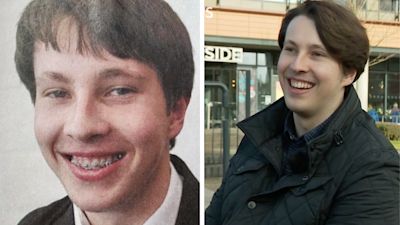Dyslexic student, bullied at school for being illiterate, now studying Master's degree

David Johnson speaks to ITV Central Education Correspondent, Peter Bearne, about overcoming dyslexia.
One in ten of people have dyslexia, a learning difficulty which affects their ability to read and write.
However, despite its prevalence, it's well recognised that children with the condition often don't get the support they need in school.
Many dyslexic pupils are dismissed as being poor learners, and children with the condition are more likely than peers to be excluded.
Maple Hayes Hall in Lichfield, Staffordshire, is a specialist dyslexia school. It uses a unique method of teaching which involves symbols or "icons".
Children link the images to words, rather than use the traditional "phonetics" approach, to help them to spell.
One of the school's many success stories is David Johnson. As a young boy, he struggled academically and was bullied.
At the age of eleven, his parents sent him to Maple Hayes where he began secondary school barely able to write and with a reading age of six and a half.
It meant a daily 127-mile round trip from his home in Kenilworth, Warwickshire.
David says it transformed his life - he passed his GCSEs, gainly massively in confidence and went on to study Product Design at De Montfort University in Leicester.
He graduated with a B.A degree last November and is now doing a Master's.
"Many years ago people would say I wouldn't even get to university, but here I am."
David likes to think he's living proof that dyslexia needn't be a barrier, so long as you get the right support at school.
He says he owes everything to his time at Maple Hayes Hall.
Without doubt, too many young people with dyslexia do not get the best life outcomes, and many believe more needs to be done to help teachers support them.
The figures speak for themselves - it's estimated as many as half of adult prisoners in this country are dyslexic.